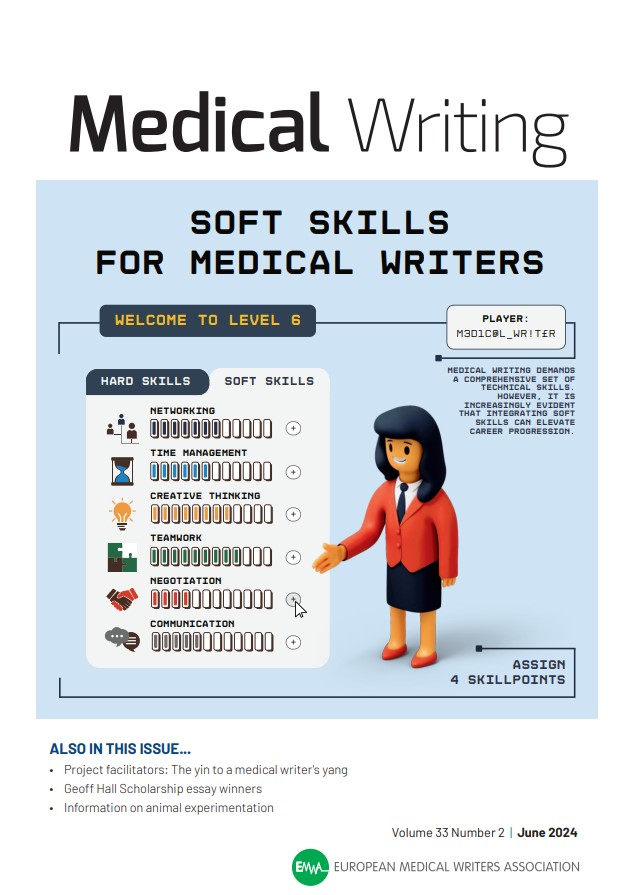
Volume 33, Issue 2 - Soft Skills for Medical Writers
Advance your medical writing career with essential soft skills
Authors: Clare Chang, Nicole Bezuidenhout
Abstract
Medical writing demands a comprehensive set of technical skills, from mastering regulatory and ethical guidelines to honing exceptional writing abilities. The foundation of superior medical writing is built on the hard skills acquired through education, hands-on experience, and ongoing professional growth. However, it is increasingly evident that integrating non-technical or “soft” skills can elevate one’s medical writing skills and bolster career progression. In our rapidly evolving an interconnected world, soft skills are becoming indispensable.
Medical Writing. 2024;33(2):2–4. https://doi.org/10.56012/tblo2282
 Download the full article
Download the full article
Search
Articles
Links
Editoral Board
Editor-in-Chief
Co-Editors
Senior Editor
Victoria White
Managing Editor
Alicia Brooks Waltman
Associate Editors
Section Editors
AI/Automation
Biotechnology
Digital Communication
EMWA News
Freelancing
Gained in Translation
Getting Your Foot in the Door
Good Writing Practice
Pablo Izquierdo / Alison McIntosh
In the Bookstores
Publications
Medical Communications/Writing for Patients
Medical Devices
My First Medical Writing
News from the EMA
Pharmacovigilance
Regulatory Matters
Regulatory Public Disclosure
Louisa Ludwig-Begall / Sarah Kabani
The Crofter: Sustainable Communications
Veterinary Writing
Editors Emeritus
Layout Designer
Chris Monk
 Visit the EMWA website
Visit the EMWA website